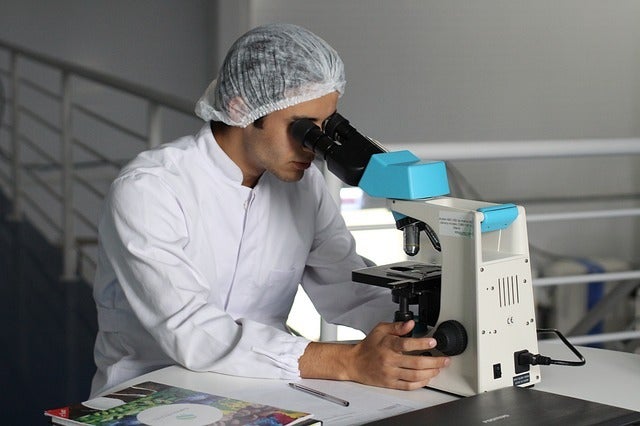
A team of scientists from Professor Georgios Giamas’ lab at the University of Sussex has developed a blood test to diagnose the most aggressive type of brain tumour, known as Glioblastoma.
Through a new research funded by the charity ‘Action Against Cancer’, the team has identified novel biomarkers within bodily fluids, which signal the presence of the tumour.
Cancer biomarkers are molecules that are exclusively found in cancer cells and are over-expressed in cancer cells than in normal, healthy cells. They are considered as biological signatures for a disease.
Georgios Giamas said: “At the moment, the outlook for glioblastoma patients is bleak. As the most aggressive type of brain tumour, survival rate is low.
“Our research provides more information about the markers which can signal the presence of glioblastoma – and the fact we’ve been able to identify ones that are associated with extracellular vesicles, suggests that there could be a way to use bodily fluids to test for the tumour in future.”
Biomarkers indicate the presence of cancer in the body
The research paper published in the Nature journal Communications Biology, explains the particular biomarkers associated with extracellular vesicles, small packages released by cells into bodily fluids, enabling cells to communicate with each other.
The research shows that bodily fluids like blood are considered the easy way to test glioblastoma, instead of a biopsy, which involves invasive and painful procedure and consumes considerable time for obtaining the results.
There are three sub-types of glioblastoma which have different biomarkers containing different information, and research is being done on improving the accuracy of diagnosis and to personalise treatment depending on the sub-type of cancer.
Liquid biopsies allow doctors to take a small sample of blood and test for a range of biomarkers which will help identify the subtype of tumour.
The research team is planning to test and validate the presence of newly described biomarkers in glioblastoma patients. The technique is set to become an option for diagnosing glioblastoma.
The study co-author Thomas Simon said: “Liquid biopsies mean a less invasive procedure for patients, and arguably quicker results – something which is invaluable for those with an aggressive tumour that severely cuts life expectancy.
“But it could also mean better patient follow-up care, as a simple test can be carried out to check for the efficacy of existing treatments or for monitoring relapse. The more we know about biomarkers the better, so this is a step which should provide hope for anyone whose lives have been impacted by glioblastoma.”






